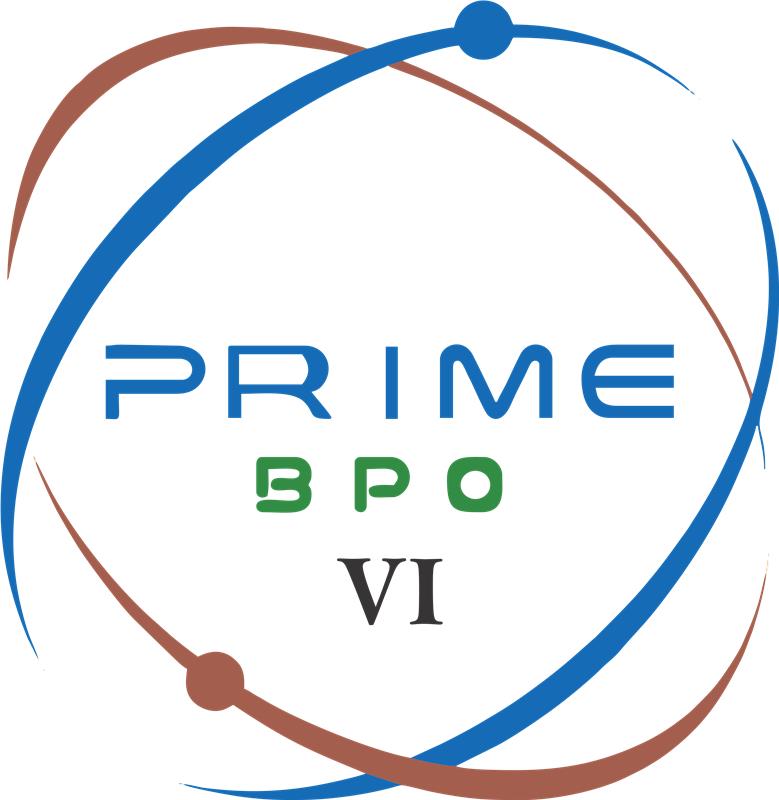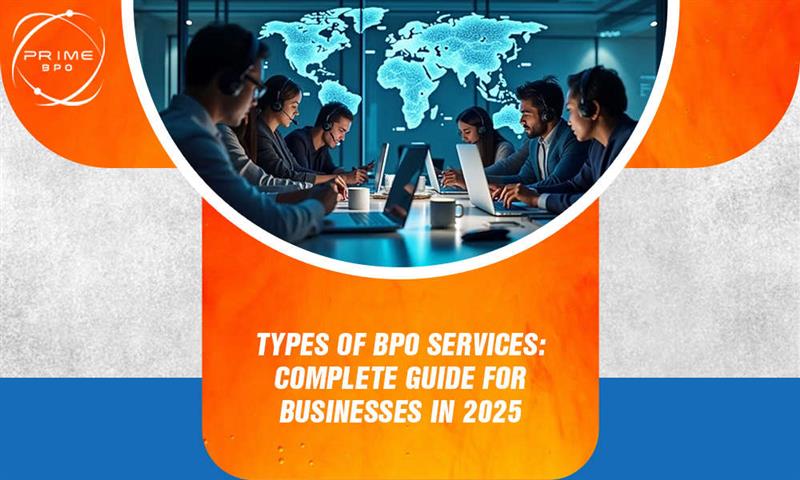1. Introduction
Business Process Outsourcing (BPO) has evolved into a critical strategy for companies aiming to reduce costs, enhance efficiency, and focus on core business activities. Outsourcing non-core functions to specialized vendors can significantly streamline operations and improve scalability. Today, BPO is no longer just about simple outsourcing tasks; it includes a wide range of services tailored to the specific needs of various industries.
In 2025, the demand for BPO services continues to grow as businesses look for ways to stay competitive in an increasingly globalized market. These services are available across various industries such as healthcare, finance, media, and retail, each benefiting from specialized outsourcing options.
This guide provides an in-depth look at the different types of BPO services available, helping you understand the key differences between offshore BPO, nearshore BPO, and custom BPO solutions. Whether you are a small startup or an established corporation, understanding these BPO types will help you choose the right outsourcing strategy for your business.
2. Core Types of BPO Services
The primary categories of BPO services are typically broken down into front office and back office outsourcing, as well as newer forms such as Knowledge Process Outsourcing (KPO) and Legal Process Outsourcing (LPO). Let's take a look at each.
Front Office BPO
Front office outsourcing involves client-facing services, including customer service, sales, and technical support. For instance, companies often outsource their call centers to provide support in areas such as troubleshooting, sales inquiries, or customer service. With US BPO companies offering front office solutions, businesses can access high-quality customer support that enhances customer satisfaction and loyalty.
Back Office BPO
Back office services involve operations that do not directly interact with customers but are essential for business functions. These services include data entry, accounting, payroll, IT management, and human resources. By outsourcing these activities, businesses can reduce costs while focusing their internal resources on core operations.
Knowledge Process Outsourcing (KPO)
KPO is a more specialized form of outsourcing, focused on tasks that require expertise, research, and analysis. This can include services like market research, data analysis, and even patent research. KPO providers typically have a high level of specialized knowledge and offer services that go beyond standard back-office tasks.
Legal Process Outsourcing (LPO)
LPO includes outsourcing legal services such as contract management, legal research, and document review. Law firms and corporations use LPO to reduce costs and improve efficiency while handling complex legal tasks.
3. Industry-Specific BPO Services
Each industry has unique needs, and BPO services are increasingly specialized to cater to these demands. Let's explore some of the most prominent industry-specific BPO services.
BPO Services for Media and Entertainment
The media and entertainment industry requires outsourcing solutions to manage tasks such as content creation, distribution, and customer interactions. Media and entertainment BPO services can include video editing, customer support for subscription-based services, and social media management. These services allow companies in the entertainment sector to focus on creative processes while outsourcing administrative and operational tasks.
BPO Services for Publishers
Publishers benefit from outsourcing solutions that support editorial tasks, subscription management, data entry, and customer service. BPO services for publishers help streamline editorial workflows, improve customer experience, and reduce operational costs. Many publishing companies outsource parts of their digital content management, marketing, and even print management to improve efficiency.
Healthcare and Finance BPO
Healthcare organizations rely on BPO for administrative tasks such as billing, insurance claims processing, and patient record management. In finance, BPO services help with back-office operations like accounting, fraud detection, and customer service. Both industries benefit from outsourcing these time-consuming tasks, allowing them to focus on providing quality service to their customers.
4. Geographical Models of BPO
BPO vendors operate in different regions, offering varying levels of service based on geographical location. The main models include offshore, nearshore, and onshore BPO.
Offshore BPO Services
Offshore BPO services refer to outsourcing business processes to companies located in foreign countries. Popular offshore destinations include India, the Philippines, and Mexico. Offshore BPO offers substantial cost savings but may come with challenges related to time zone differences, language barriers, and cultural differences. However, offshore BPO services remain a cost-effective solution for many businesses looking to reduce operational costs.
Nearshore BPO Services
Nearshore BPO involves outsourcing to neighboring countries or those within the same time zone. For US-based companies, BPO services in Mexico are particularly attractive due to the proximity, ease of communication, and cost savings. With fewer language and cultural barriers than offshore outsourcing, nearshore BPO provides a more seamless experience for companies.
Onshore BPO Services
Onshore BPO refers to outsourcing services within the same country. While typically more expensive than offshore or nearshore outsourcing, onshore BPO offers the advantage of closer cultural alignment and minimal language barriers.
5. Custom BPO Services and Solutions
Custom BPO services are tailored solutions designed to meet the specific needs of a business. Unlike traditional BPO services that provide standardized solutions, custom BPO services are flexible and scalable, allowing businesses to create outsourcing strategies that align with their unique requirements.
For example, companies looking for custom BPO solutions can choose from a variety of services, including customer support, technical assistance, back-office functions, and more. The flexibility of custom solutions means businesses can focus on high-priority tasks and ensure that outsourced functions directly contribute to their growth.
Prime BPO provides custom BPO services designed to meet the specific demands of businesses in sectors such as finance, retail, and customer service. This approach ensures that clients receive tailored solutions that align with their operational goals.
6. BPO for Supply Chain and Logistics
In supply chain management, BPO services play a crucial role in streamlining operations and reducing costs. Supply chain BPO services can include tasks such as procurement, inventory management, order processing, and logistics coordination. By outsourcing these functions, companies can improve efficiency, reduce operational risks, and focus on strategic growth.
There are many supply chain BPO vendors that specialize in managing the various aspects of logistics, from shipping and delivery to warehousing and order fulfillment. These vendors use advanced technologies and processes to ensure timely and cost-effective solutions.
7. Top Considerations When Choosing a BPO Vendor

Selecting the right BPO vendor is critical to the success of your outsourcing strategy. Here are some factors to consider when evaluating potential vendors:
- Cost: Consider the pricing structure of the vendor, whether it’s offshore, nearshore, or onshore.
- Scalability: Ensure that the vendor can scale operations as your business grows.
- Expertise: Look for vendors that specialize in the services your business needs.
- Security: Data security and privacy protection are crucial, especially for sensitive information.
- Reputation: Research the vendor’s track record and client reviews.
8. Conclusion: Which Type of BPO Service Is Right for You?
Choosing the right type of BPO service depends on your business’s needs, budget, and long-term goals. Understanding the differences between front office and back office BPO, KPO, and LPO, as well as considering industry-specific needs, will guide you toward the best decision.
Additionally, evaluating geographical options (offshore, nearshore, or onshore) and selecting a custom BPO solution tailored to your specific operations can significantly improve efficiency, reduce costs, and enhance your overall business performance.
At Prime BPO, we offer a wide range of outsourcing services designed to meet the unique needs of your business. Whether you need specialized support for your supply chain, media, or publishing operations, we have the expertise and resources to help you succeed.
Get Free Quotes
Customized Options Await
Frequently Asked Questions (FAQs)
1. What are the different types of BPO services?
The main types of BPO services are front office BPO (customer-facing services like support and sales), back office BPO (non-customer-facing services like accounting and data entry), Knowledge Process Outsourcing (KPO) (specialized services like research and analysis), and Legal Process Outsourcing (LPO) (legal services like contract management and legal research).
2. What is the difference between offshore and nearshore BPO?
Offshore BPO involves outsourcing to countries far from your location, typically for cost savings. For example, US companies may outsource to India or the Philippines. Nearshore BPO, on the other hand, refers to outsourcing to neighboring or nearby countries, like the US outsourcing to Mexico. Nearshore outsourcing typically offers easier communication and fewer language and cultural barriers.
3. Why should a company use custom BPO services?
Custom BPO services allow companies to tailor outsourcing solutions to their needs, providing a more flexible and personalized approach than standard BPO offerings. This can include specialized customer support, industry-specific processes, or scalable solutions that align with business objectives.
4. What are BPO services for publishers?
BPO services for publishers help streamline editorial, production, and customer-facing tasks. These may include content creation, subscription management, data entry, social media management, and customer support, enabling publishers to focus more on creative and strategic activities.
5. How does BPO help in the supply chain industry?
BPO can handle procurement, inventory management, order processing, logistics coordination, and customer service in the supply chain industry. Outsourcing these functions helps businesses optimize operations, reduce costs, and improve overall supply chain efficiency.






